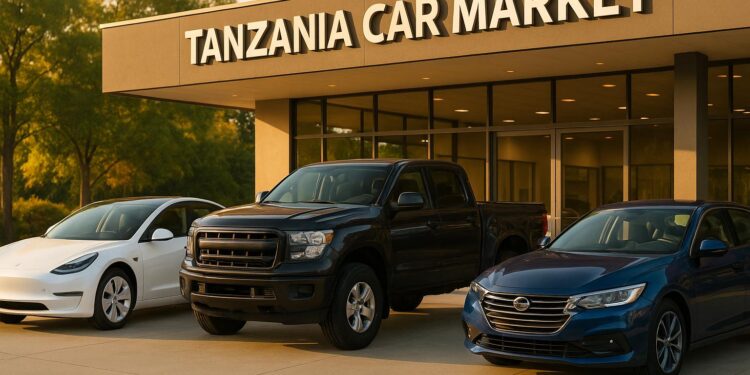The Tanzanian car market in 2025 is booming, with used cars dominating thanks to affordability and practicality. Buyers prioritize cost, fuel efficiency, and reliability, while government incentives are encouraging a gradual shift toward low-emission vehicles. Here’s a quick rundown of top options:
- Toyota Hilux: Durable, reliable, excellent resale value, and handles tough terrains well.
- Isuzu D-Max: Budget-friendly alternative to the Hilux, with great fuel efficiency and solid performance.
- Ford Ranger: Versatile mid-size pickup for work and everyday driving.
- Jetour X70: A spacious SUV option for families, but service network is still developing.
- Toyota Corolla: A dependable compact sedan with low maintenance costs and great fuel efficiency.
- Honda Fit: Affordable hatchback with excellent gas mileage and flexible interior space.
- Japanese Kei Cars: Compact, budget-friendly cars with low fuel consumption, perfect for city driving.
- BYD Dolphin: Affordable electric hatchback with low running costs, ideal for urban use.
- Tesla Model 3: Premium electric sedan offering advanced features but at a higher price point.
- Volkswagen ID.4: High-end electric SUV with strong engineering but limited charging infrastructure.
- Changan EVs: Affordable electric options for city driving, with low maintenance costs.
- Wuling EVs: Basic, cost-effective electric vehicles for short commutes.
Quick Comparison
| Model | Type | Price Range | Fuel/Energy Efficiency | Maintenance Costs | Key Feature |
|---|---|---|---|---|---|
| Toyota Hilux | Pickup Truck | Moderate (Used) | Good | Low | Durability, resale value |
| Isuzu D-Max | Pickup Truck | Budget-Friendly | Excellent | Low | Reliable for tough roads |
| Ford Ranger | Pickup Truck | Moderate | Decent | Moderate | Versatility |
| Jetour X70 | SUV | Affordable | Decent | TBD | Spacious interior |
| Toyota Corolla | Sedan | Affordable | Excellent | Low | Dependable, fuel-efficient |
| Honda Fit | Hatchback | Budget-Friendly | Excellent | Low | Flexible interior design |
| Japanese Kei Cars | Compact Cars | Low | Excellent | Low | Budget-friendly, city-friendly |
| BYD Dolphin | Electric Car | Affordable | Excellent | Very Low | Low running costs |
| Tesla Model 3 | Electric Car | High | Excellent | Low | Advanced features |
| Volkswagen ID.4 | Electric SUV | High | Excellent | Low | Premium engineering |
| Changan EVs | Electric Cars | Affordable | Good | Low | Budget EV for urban use |
| Wuling EVs | Electric Cars | Very Affordable | Good | Low | Entry-level electric mobility |
Whether you’re looking for rugged pickups, compact sedans, or eco-friendly electric vehicles, the Tanzanian market has plenty of options to suit different needs and budgets.
Recapping Tanzanian Used Car Market Report (in Swahili)
1. Toyota Hilux
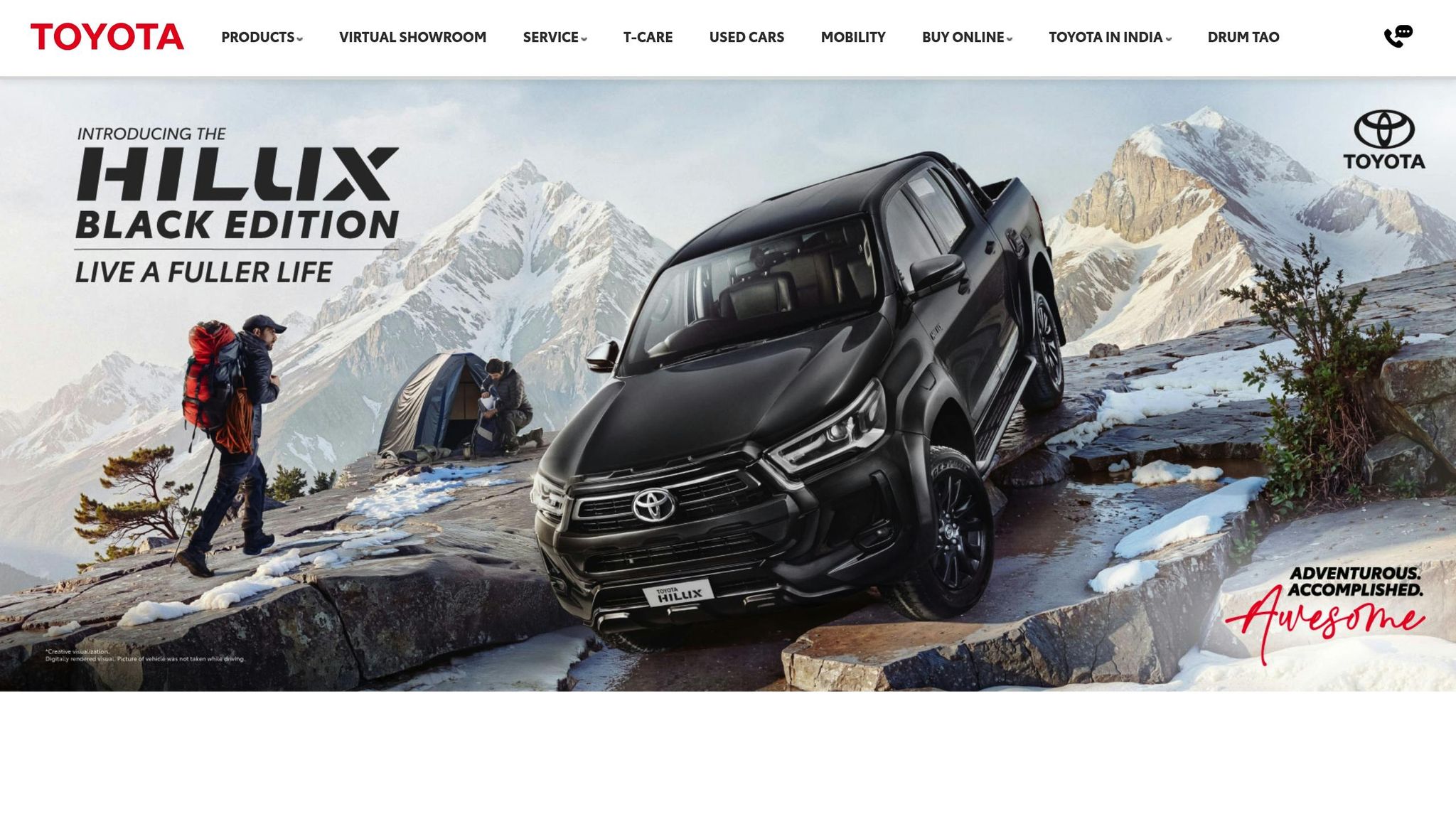
The Toyota Hilux stands out as one of the most popular pickup trucks in Tanzania, earning its reputation for toughness and reliable performance. Its ability to handle the demanding East African roads has made it a go-to choice for both personal and commercial use.
Purchase Price and Market Position
In Tanzania, the used Toyota Hilux market is thriving, with models available at prices that balance affordability with quality. Factors like age and mileage influence pricing, but the steady flow of imported vehicles ensures buyers have access to reliable options without paying the premium of a brand-new vehicle.
Fuel Efficiency Performance
For its class, the Hilux offers commendable fuel efficiency, making it a practical choice for long-distance travel. Whether you’re navigating the roads between Tanzania’s major cities or heading into more remote areas, the Hilux helps keep fuel expenses in check while offering dependable performance.
Maintenance and Parts Availability
One of the Hilux’s strongest selling points is the widespread availability of genuine parts and service options. With authorized service centers located in major towns, owners can count on affordable and efficient maintenance to keep their vehicles in top condition.
Durability and Resale Value
The Hilux’s rugged construction not only ensures reliable performance on both urban streets and off-road terrain but also contributes to its strong resale value. Its durability is a major draw for commercial sectors like agriculture and transportation, where reliable vehicles are essential. This demand, paired with its reputation for low maintenance costs, often results in favorable resale prices when owners decide to upgrade or sell.
2. Isuzu D-Max
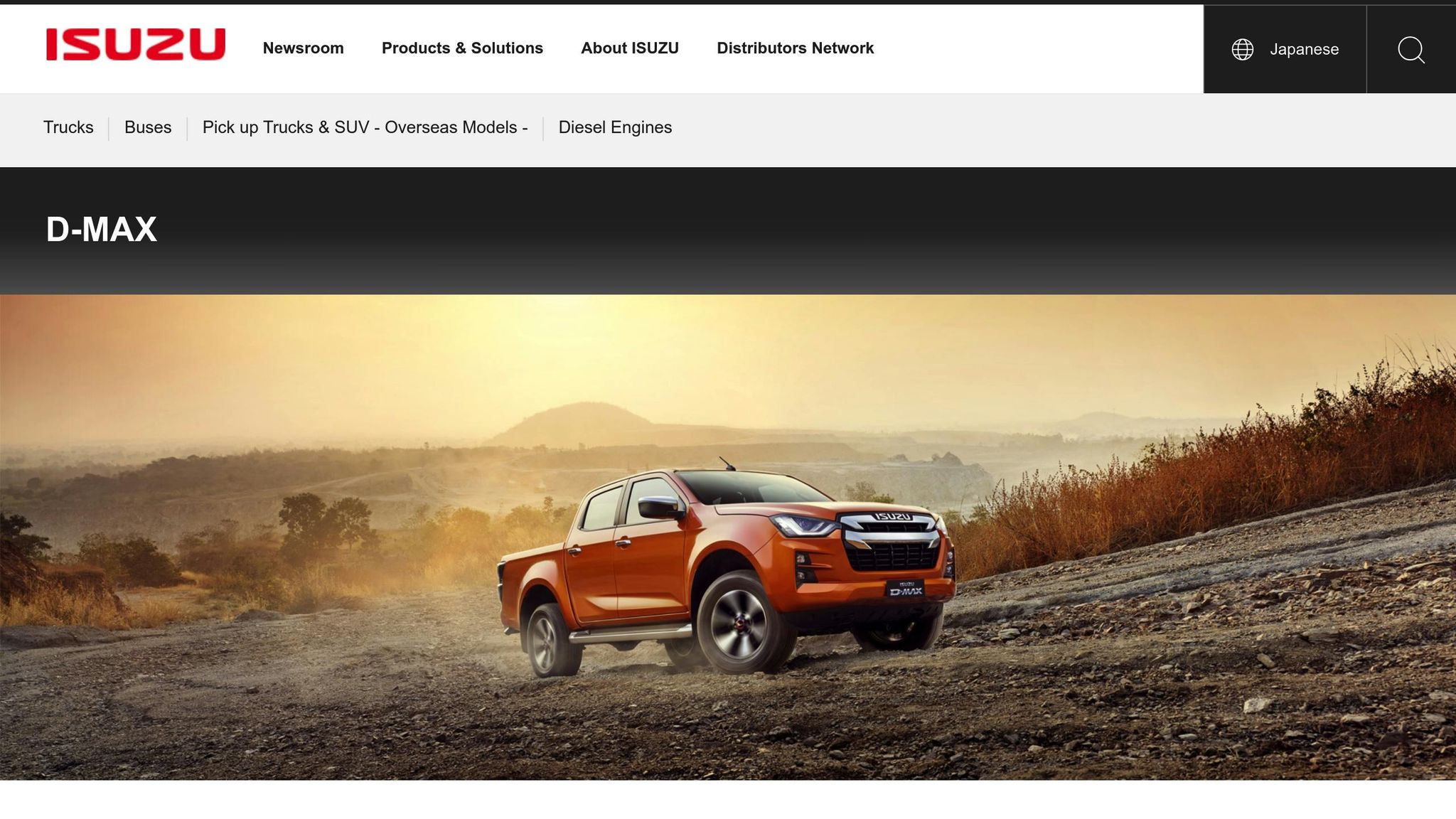
The Isuzu D-Max stands out in Tanzania’s pickup truck market for its solid engineering and practical features. Designed in Japan, this pickup has become a favorite among Tanzanian buyers looking for a dependable vehicle that serves both personal and business needs. Much like the Toyota Hilux, the D-Max strikes a good balance between cost and performance, making it a reliable choice for tough road conditions.
Here’s a closer look at what makes the D-Max a strong contender:
Purchase Price and Market Position
In Tanzania’s used vehicle market, the D-Max is often seen as a budget-friendly alternative to other popular pickups. Its pricing is competitive, offering buyers a truck that delivers reliable performance without the high costs associated with brand-new models. For those seeking value without compromising on capability, the D-Max is an appealing option.
Fuel Efficiency
The D-Max is known for its excellent fuel economy, which is a big advantage for Tanzanian drivers. Its diesel engine technology is designed to keep fuel consumption low, helping owners save on operational costs. This is particularly beneficial for businesses that cover long distances daily, as it leads to noticeable savings over time.
Maintenance and Parts Availability
Isuzu has established a strong service network in Tanzania, with authorized centers providing quick and affordable maintenance. Replacement parts are also readily available, thanks to the brand’s focus on supporting the East African market. This accessibility ensures that maintaining a D-Max is straightforward and cost-effective, reducing downtime for owners.
Durability and Resale Value
Built to handle Tanzania’s challenging roads, the D-Max is known for its durability. Its sturdy construction makes it suitable for both urban and rural settings, appealing to industries like agriculture and construction. Additionally, the D-Max holds its value well in the resale market. Owners can expect strong demand when selling, as its reputation for reliability continues to attract buyers in the commercial sector.
3. Ford Ranger
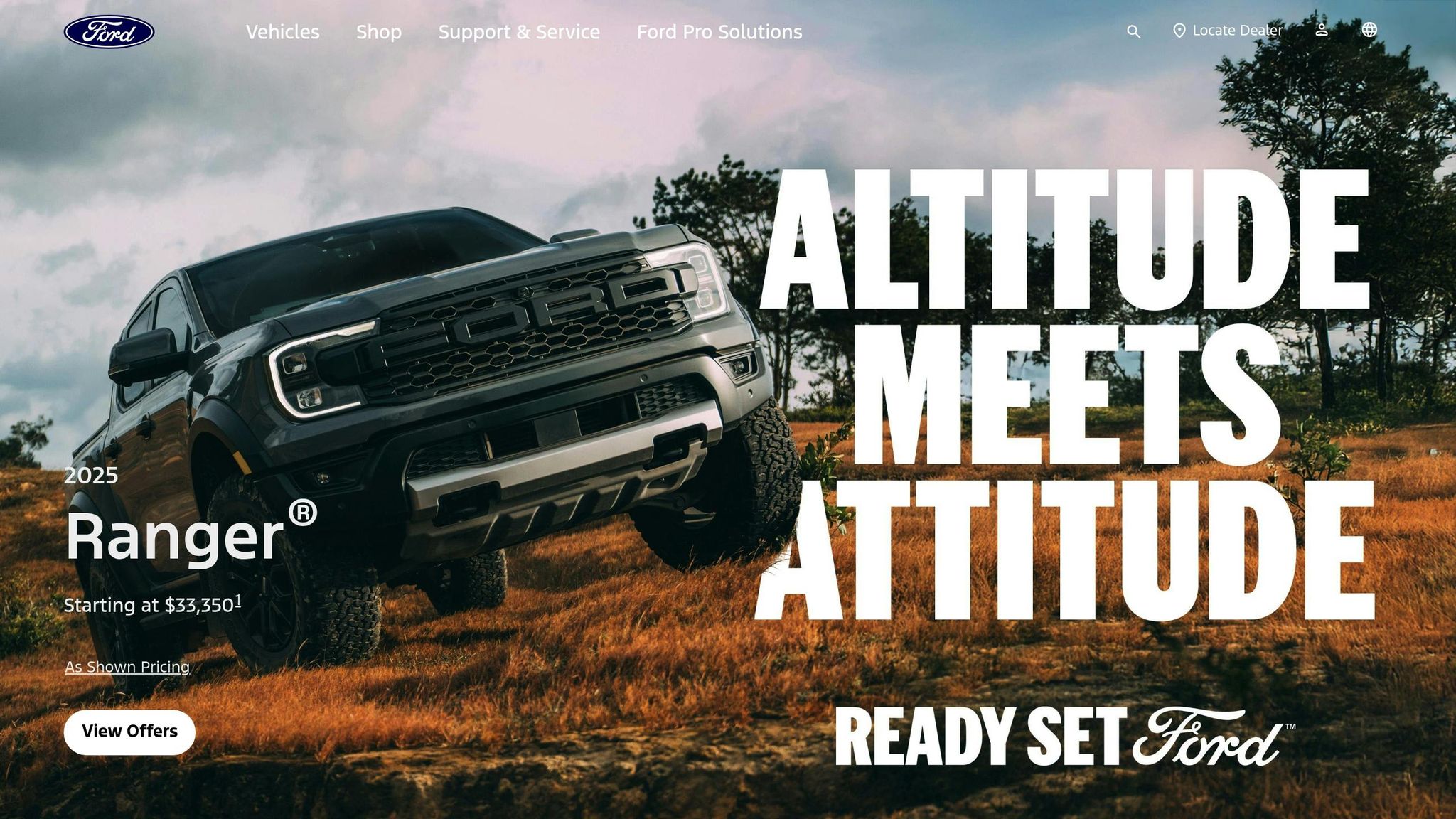
The Ford Ranger is a solid contender in the mid-size pickup category, offering strong performance and versatility. It’s well-suited for both work-related tasks and everyday driving, making it a reliable choice for navigating Tanzania’s varied terrains.
This truck mirrors the shifting preferences of drivers in Tanzania, adapting to the needs of a dynamic market.
4. Jetour X70
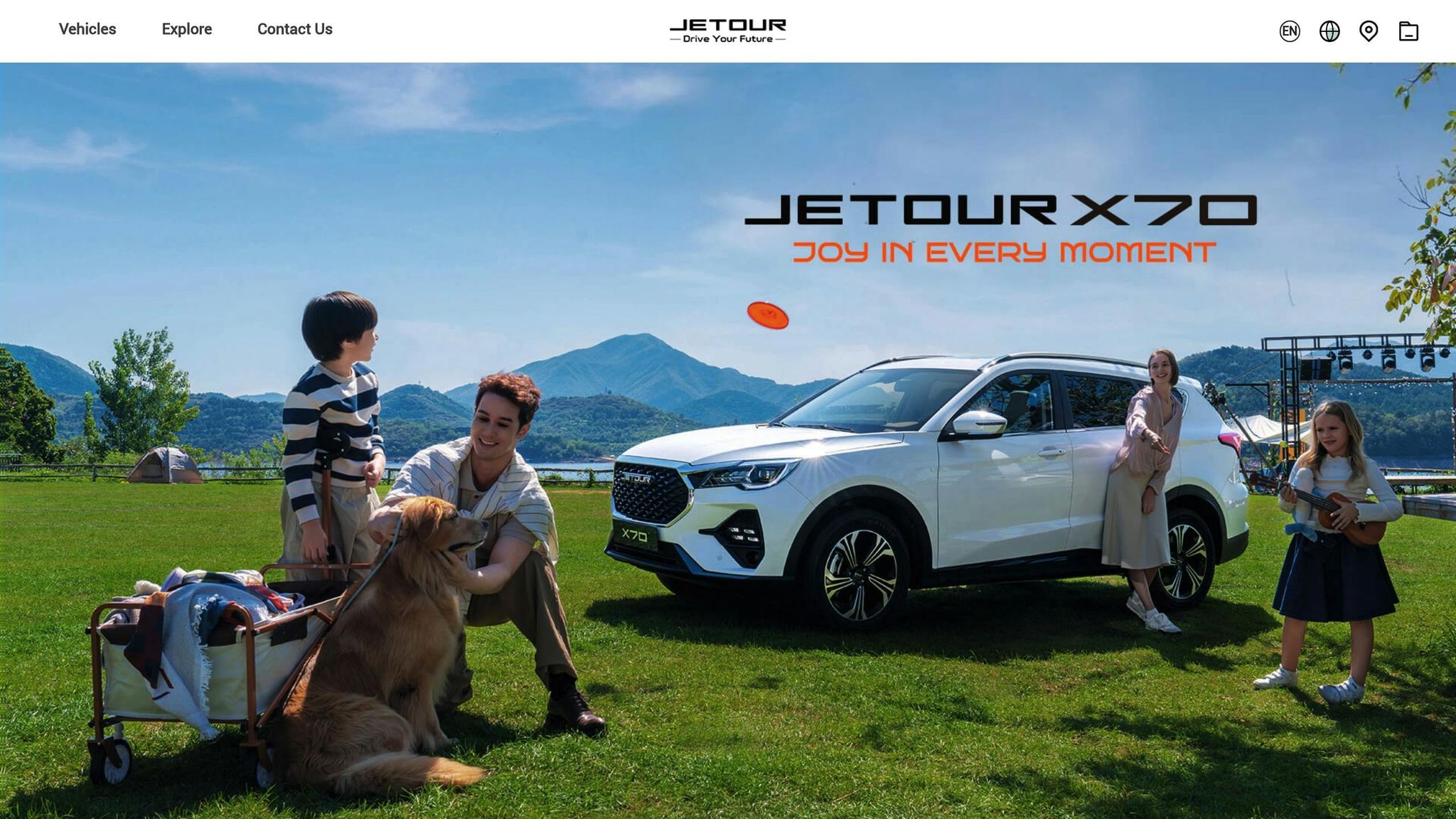
The Jetour X70 marks a shift from mid-size pickups to SUVs, bringing a fresh option to Tanzania’s 2025 automotive scene. This seven-seater SUV, designed and engineered in China, focuses on offering a balance of affordability and functionality, making it an appealing choice for families or groups.
With its roomy interior and modern tech features, the Jetour X70 is built for comfortable daily commutes and highway drives. However, as a newer player in the market, potential buyers should keep an eye on the development of its service network and the availability of spare parts.
5. Toyota Corolla
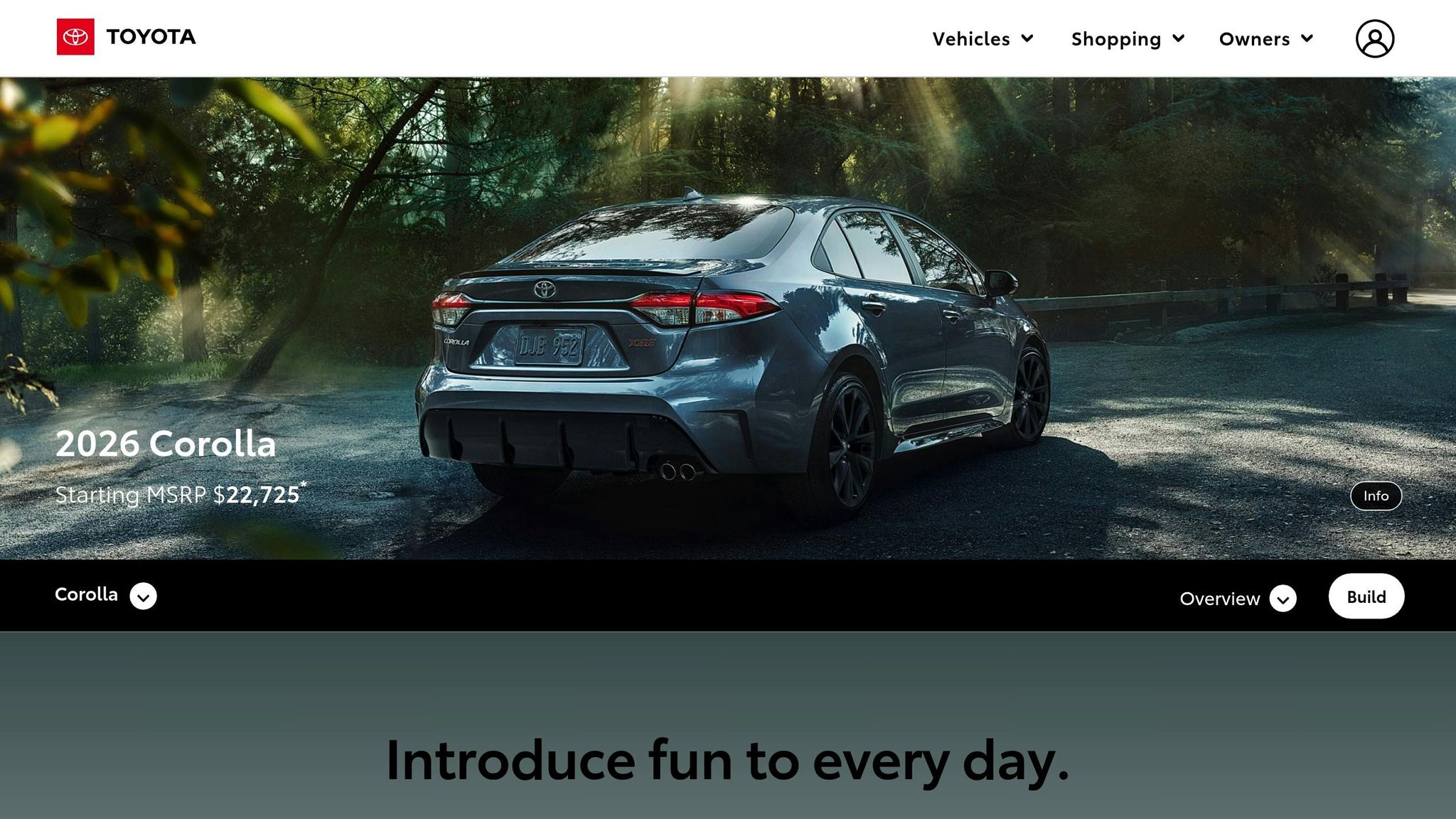
The Toyota Corolla has long been a standout in the compact sedan category, celebrated for its dependability and cost-effectiveness. This globally recognized model continues to attract drivers with its blend of affordability, fuel efficiency, and solid resale value.
As of 2025, the Corolla remains competitively priced, whether you’re eyeing a brand-new mid-range model or exploring the robust second-hand market. Thanks to its widespread availability, finding a well-maintained used Corolla is often a straightforward task.
One of the Corolla’s biggest selling points is its excellent fuel efficiency, which helps keep monthly fuel expenses manageable for both daily commuters and those who frequently hit the road for longer trips.
Maintenance is another area where the Corolla shines. Toyota’s extensive service network ensures that repairs are quick and accessible, while the car’s straightforward mechanics help keep upkeep costs in check.
With its spacious interior, modern safety features, and a reputation for durability, the Corolla proves to be a reliable and practical option that can handle the demands of Tanzanian roads with ease.
6. Honda Fit
The Honda Fit is a small hatchback that has earned a solid reputation for its clever design, great fuel efficiency, and adaptable interior. Among Tanzanian drivers, it’s especially popular with those looking for a budget-friendly car that balances fuel savings and practicality.
One of the Fit’s biggest draws is its affordability. New models are priced reasonably for buyers watching their budgets, while the used car market offers even cheaper options. Thanks to its popularity, finding well-maintained second-hand Fits in cities is relatively easy.
With a lightweight build and an efficient engine, the Fit delivers excellent gas mileage, making it a smart choice for city driving. For those in the taxi business, this fuel efficiency is a game-changer, helping to keep daily operating costs low.
Maintenance is another area where the Fit shines. Honda’s established service network ensures that parts are easy to find, and many local mechanics are well-versed in Honda vehicles. This means keeping the car in good condition won’t break the bank.
Don’t let its compact size fool you – Honda’s innovative seat-folding system transforms the interior into a surprisingly roomy space. Whether you’re commuting or hauling small loads, the Fit adapts to your needs effortlessly.
Plus, the Honda Fit holds its value well when it’s time to sell, offering peace of mind that your investment remains worthwhile.
For Tanzanian drivers who need a dependable, cost-effective car that’s as versatile as it is efficient, the Honda Fit is tough to beat. Its mix of practicality and affordability makes it a standout in the subcompact category.
7. Japanese Kei Cars
Japanese Kei cars are a standout choice in Tanzania’s used car market, offering a budget-friendly and fuel-efficient solution for buyers. With engines typically under 1,000 cc, these compact vehicles have gained immense popularity, particularly among those looking for low purchase prices and savings on fuel.
One of the key reasons for their affordability lies in their engine size. Most imported Kei cars feature engines ranging from 660 to 1,000 cc, which helps reduce import duties. This keeps many models priced below $5,000, making them an attractive option. In fact, Kei cars accounted for 44.29% of the used car market turnover in 2024, highlighting their strong presence in the market.
Fuel efficiency is another major advantage. Thanks to their small engines, Kei cars are highly economical on fuel, making them ideal for daily commutes or commercial uses like taxi services. This is especially valuable in a market where fluctuating fuel prices can significantly impact operating costs.
Maintenance costs are another area where Kei cars shine. With affordable spare parts readily available and a network of mechanics experienced with Japanese models, keeping these cars in good condition is both easy and economical. Their compact size also makes them perfect for navigating busy urban areas like Dar es Salaam, where hatchbacks, including many Kei cars, held a 46.95% share of the used car market in 2024.
The growing demand for Japanese Kei cars is evident in their contribution to the market’s growth, adding a +1.4% boost to Tanzania’s used car market forecast for 2024. With their low upfront costs, excellent fuel economy, and practicality for city driving, these vehicles continue to be a popular and sensible choice for Tanzanian drivers.
sbb-itb-d9186c2
8. BYD Dolphin
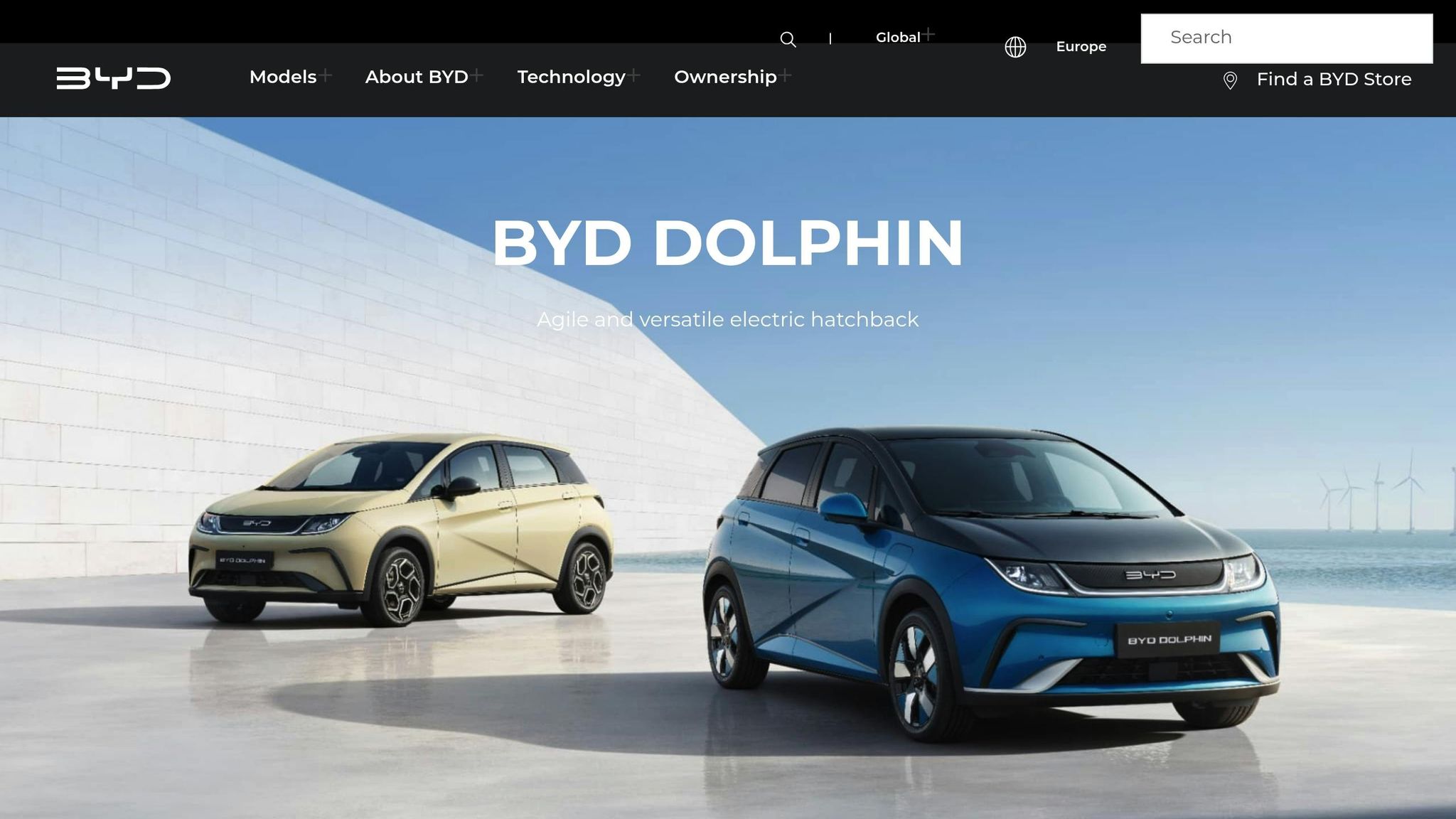
The BYD Dolphin is carving out a spot in Tanzania’s emerging electric vehicle market, offering a mix of modern features and affordability. This compact electric hatchback targets buyers who want a practical and budget-friendly option without sacrificing functionality. Its introduction aligns with Tanzania’s shift toward low-emission vehicles, a movement supported by new government incentives. This combination of cost-effectiveness and contemporary design makes the Dolphin an interesting choice for urban drivers.
Pricing for the BYD Dolphin in Tanzania will likely depend on local import duties and market conditions, with costs expected to fall within the international pricing spectrum.
The Dolphin’s electric powertrain offers lower energy costs, making it especially suited for city driving in places like Dar es Salaam. Additionally, its design includes fewer moving parts, which translates to reduced maintenance needs compared to traditional gas-powered vehicles.
While specific resale data for the Dolphin isn’t yet available, other BYD models typically retain about 55%–60% of their value after three years. Like most electric vehicles, it may see depreciation rates similar to conventional cars, but BYD’s strong brand reputation could help the Dolphin hold its value over time.
9. Tesla Model 3
The Tesla Model 3, an all-electric sedan, is available in Tanzania through imports, though direct pricing specific to the country isn’t listed. For a reference point, pricing from neighboring Kenya provides some insight.
Costs vary based on the import process and the specific model. In Kenya, the 2025 Tesla Model 3 starts at around $35,000 for the Standard model, with the Long Range RWD version priced at approximately $50,000. Tanzanian prices are likely to be slightly higher due to added import duties and logistics. This positions the Model 3 as a premium electric vehicle option that’s becoming more accessible in the region.
10. Volkswagen ID.4
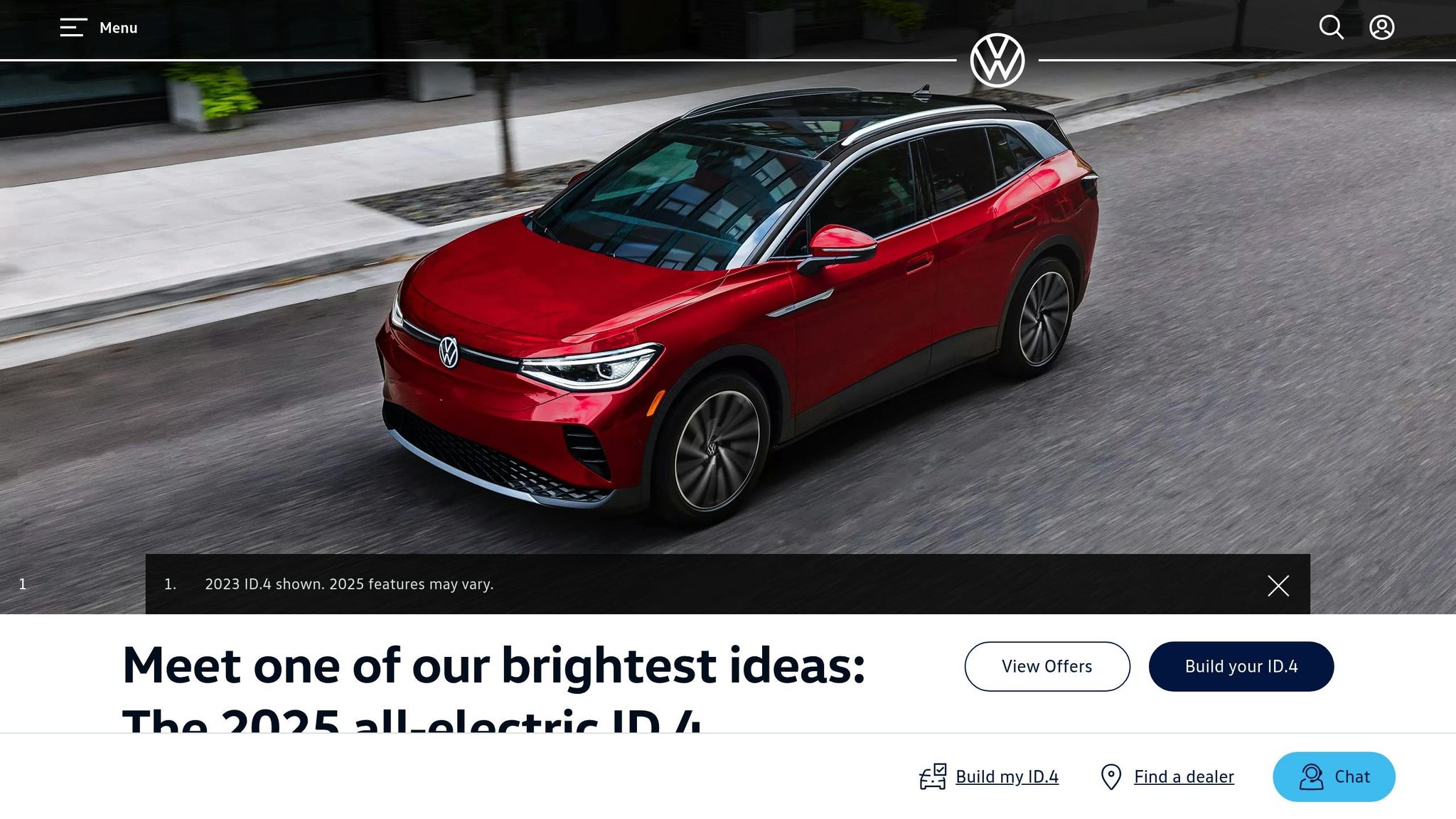
The Volkswagen ID.4 has made its way into the Tanzanian market as a high-end electric SUV, primarily available through import channels. Known for its German engineering, this model reflects the hallmark quality associated with European vehicles, offering a glimpse into the evolving world of electric mobility.
Pricing and Affordability
As a luxury import, the ID.4 comes with a higher price tag compared to traditional SUVs. It’s aimed at buyers who prioritize cutting-edge technology and sleek, modern design in their vehicles.
Energy Efficiency and Range
The ID.4 is designed with energy efficiency in mind, delivering a solid driving range on a single charge. While manufacturer claims suggest an impressive range, real-world driving conditions may slightly lower these numbers. Still, it offers enough range to comfortably handle daily commutes and errands.
Maintenance and Service Considerations
Thanks to its electric powertrain, the ID.4 requires less routine maintenance – there’s no need for oil changes, and it has fewer mechanical parts that can wear out. However, Tanzania’s limited network of specialized EV service centers could pose challenges, potentially requiring owners to rely on import mechanics or services available in larger cities.
Technology and Features
The ID.4 is packed with modern features, including a sleek touchscreen interface, wireless smartphone integration, over-the-air updates, generous cargo space, and advanced driver assistance systems.
Resale Value Expectations
With Tanzania’s electric vehicle market still in its infancy, predicting the ID.4’s resale value is tricky. However, Volkswagen’s reputation for quality craftsmanship could help the vehicle maintain its value. That said, rapid advancements in EV technology and battery standards might impact its long-term resale appeal.
Charging Infrastructure Reality
The ID.4 supports both standard and fast charging options, but Tanzania’s charging infrastructure is still developing. For now, most owners will likely rely on installing home charging systems, as public charging stations are mostly found in major urban areas.
11. Changan EVs
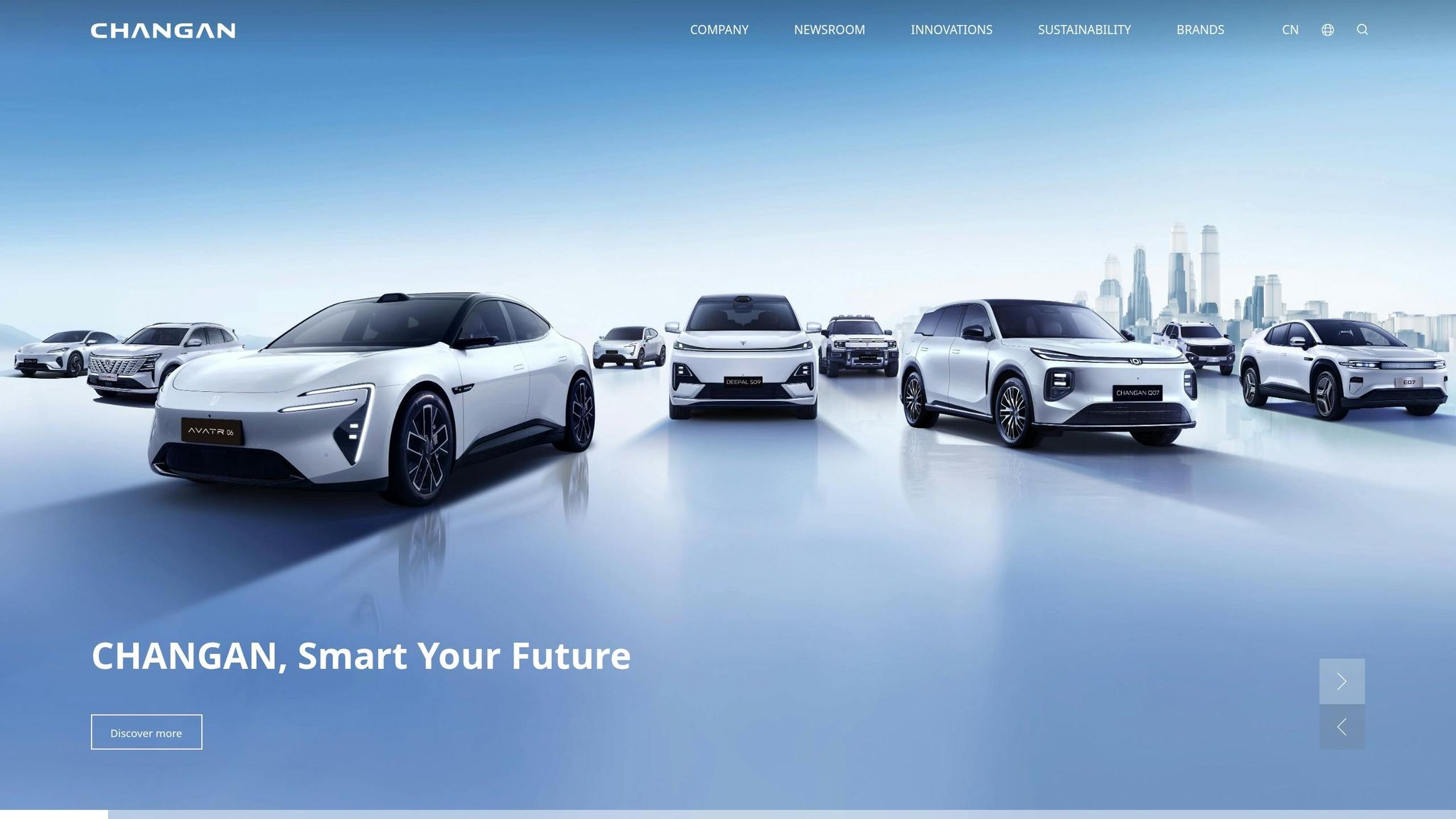
Changan EVs have made their way into Tanzania as affordable options tailored for city driving. Their budget-friendly pricing makes them an attractive choice for those eager to explore EV technology without breaking the bank. These vehicles are designed to deliver dependable performance for daily use.
Energy Efficiency and Performance
Changan EVs are built with urban commuters in mind, offering practical energy efficiency for short trips. While they don’t compete with high-end models in terms of performance, they provide a reliable and straightforward driving experience.
Maintenance and Service
One of the advantages of owning a Changan EV is the low maintenance cost, thanks to the use of standardized parts that are easy to replace and service.
Technology and Build Quality
These EVs blend modern technology with a sturdy design, making them a solid choice for budget-conscious buyers. Features like touchscreen infotainment systems and smartphone connectivity add a touch of convenience, while their durable construction ensures they meet the demands of everyday use.
Resale Value and Charging Infrastructure
When it comes to long-term ownership, factors like resale value are still taking shape, given Changan’s relatively recent entry into the market. On the charging front, these vehicles are compatible with standard home charging setups, which is particularly handy as Tanzania’s public charging network continues to expand.
12. Wuling EVs
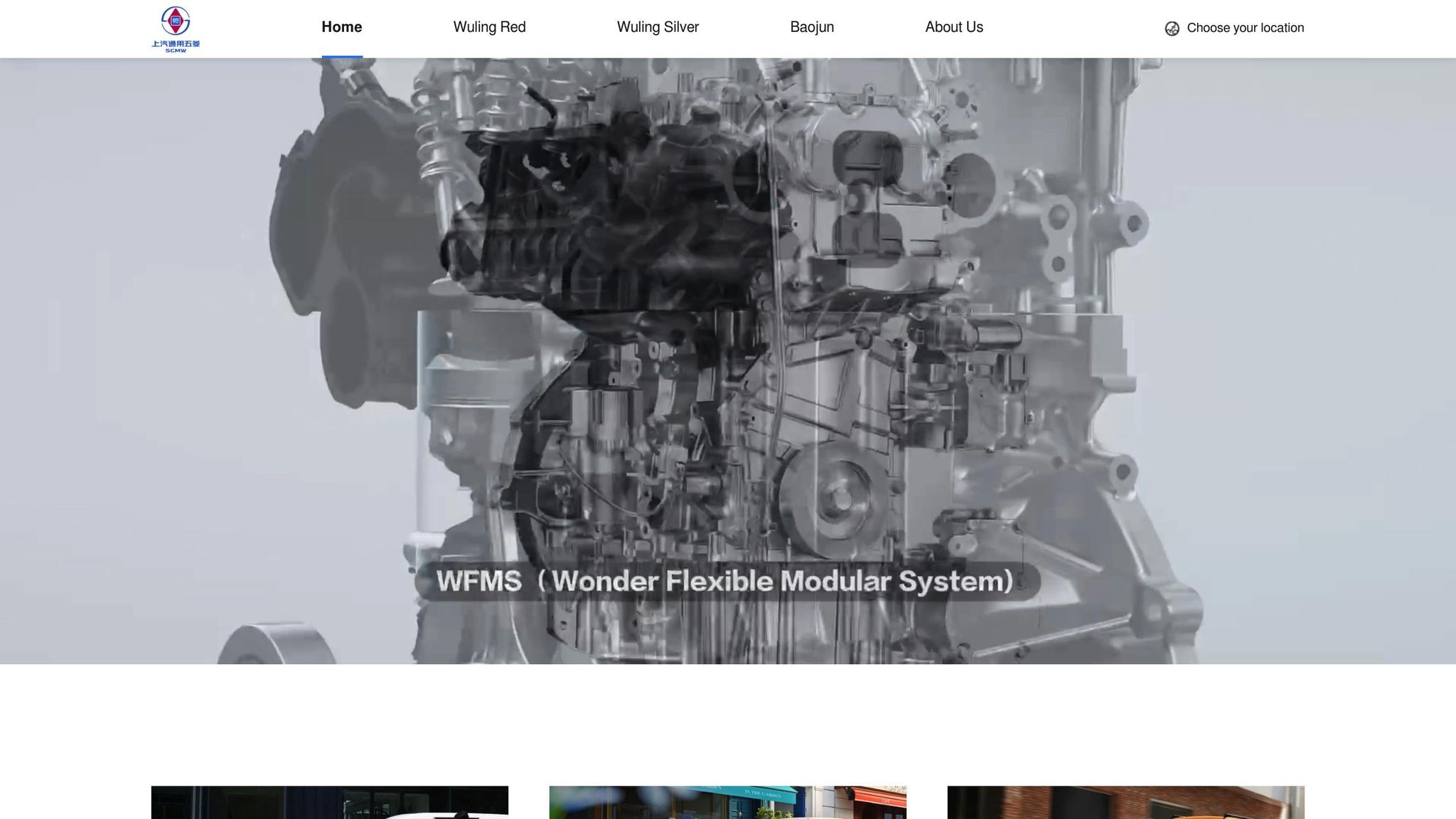
Wuling EVs bring an affordable option to Tanzania’s growing electric vehicle market in 2025. These vehicles, made in China, prioritize basic electric mobility at prices that are easier on the wallet. They serve as an entry-level choice, complementing the broader EV landscape already shaping up in the country.
Affordability and Market Fit
Wuling’s strategy is all about keeping costs low while delivering the essentials. Their compact vehicles feature smaller battery packs and simplified interiors to make electric mobility accessible to a wider audience.
Energy Efficiency and Urban Range
Tailored for city life, Wuling EVs are compact and equipped with efficient motors, making them ideal for short to medium commutes. However, their range is modest compared to higher-end EVs, aligning with their urban-focused design.
Maintenance and Parts Access
Thanks to their straightforward design, maintaining a Wuling EV is relatively simple. An expanding network of service centers in major cities, combined with locally available spare parts, ensures that upkeep is both convenient and cost-effective.
Practical Features and Build Quality
Wuling EVs focus on the basics. They come equipped with air conditioning, a simple infotainment system, and standard safety features. Their build prioritizes durability and practicality, making them a solid choice for buyers seeking value over luxury.
Resale and Long-term Value
With lower upfront costs, Wuling EVs are less affected by depreciation, especially as Tanzania’s EV infrastructure continues to improve. As more charging stations become available and EV adoption increases, these vehicles are likely to maintain a competitive resale value in the market.
Advantages and Disadvantages
This section pulls together key points to offer a clear side-by-side view of the pros and cons of different vehicle categories. By comparing these groups, buyers can better align their choices with personal needs, budgets, and long-term expectations. Each category comes with its own set of benefits and challenges, which can influence ownership costs and overall satisfaction.
Traditional Pickup Trucks and SUVs
Pickup trucks and SUVs are built tough, making them suitable for both city driving and off-road adventures. However, their ruggedness comes at a price – literally. They tend to have higher fuel consumption and purchase prices, which can be a stretch for those on tighter budgets.
Compact and Mid-Size Sedans
Compact sedans and hatchbacks shine in urban environments. They’re fuel-efficient, have lower maintenance costs, and are easy to maneuver in city traffic. On the flip side, their smaller size limits cargo space and ground clearance, making them less practical for rough terrain or heavy loads.
Electric Vehicle Options
Electric vehicles (EVs) – such as the BYD Dolphin, Tesla Model 3, Volkswagen ID.4, and models from Changan and Wuling – bring cutting-edge technology and zero tailpipe emissions to the table. They’re cheaper to operate because electricity typically costs less than gasoline, and their quiet, smooth rides are especially appealing in urban areas.
That said, EVs have their downsides. Limited charging infrastructure, higher upfront costs, potential battery replacement expenses, and smaller service networks can make ownership more challenging.
Comparative Value Analysis
As highlighted earlier, the long-term value of each vehicle type depends on several factors. Pickup trucks, for example, hold their resale value well thanks to their sturdy build, even though they come with higher fuel and maintenance costs. Compact cars strike a middle ground, offering affordability and efficiency for daily urban use. Electric vehicles, while initially expensive, deliver savings in operating costs over time – but they’re more viable for drivers who cover significant mileage. For those seeking the lowest entry price, Japanese Kei cars are an option, though they tend to depreciate faster.
Service availability also varies. Established Japanese and American brands generally offer broader service networks, while newer EV brands often focus on major cities. EVs, in particular, become more cost-effective for high-mileage drivers, as fuel savings add up over time. However, for those with lighter driving habits, justifying the higher upfront costs of an EV can be more difficult.
Conclusion
The Tanzanian automotive market in 2025 offers a wide range of vehicles to suit every budget and need, making it easier than ever to find something that delivers solid value. For those prioritizing durability and versatility, trusted names like the Toyota Hilux, Isuzu D-Max, and Ford Ranger remain top choices, especially for tackling rough roads or hauling cargo.
For city dwellers, compact and efficient cars such as the Toyota Corolla and Honda Fit shine. These models are perfect for urban driving, offering not only cost-effective fuel consumption but also strong resale values, ensuring your money goes further in the long run.
When it comes to greener options, the shift toward electric vehicles (EVs) is becoming more noticeable in Tanzania. Models like the BYD Dolphin provide an affordable entry point into EV ownership, while premium choices such as the Tesla Model 3 and Volkswagen ID.4 appeal to buyers seeking cutting-edge technology and zero-emission driving. Over time, the savings on fuel and maintenance can help balance out their higher upfront costs.
For budget-conscious buyers, options like Japanese Kei cars and affordable Chinese EVs from brands like Changan and Wuling offer practical solutions for specific needs. However, it’s important to weigh factors like long-term value and the availability of service centers before committing to these choices.
Ultimately, your decision should align with your priorities. If you often navigate rough terrain or require a vehicle with strong cargo capabilities, a pickup truck is a dependable option. For city drivers with shorter commutes, compact sedans are a smart choice. And for those covering significant mileage annually, electric vehicles can offer substantial savings over time, despite their higher initial price tag.
Another critical factor to consider is the availability of service networks. Established brands typically provide broader support, while EV manufacturers are actively expanding their reach in major urban areas. Your location and driving habits should play a key role in your decision-making process.
In the evolving Tanzanian automotive market, value comes from selecting a vehicle that fits your lifestyle and delivers dependable performance at a reasonable cost. By considering your driving needs and the local service landscape, you can make a choice that serves you well for years to come.
FAQs
What are the benefits of choosing an electric vehicle over a gasoline car in Tanzania’s 2025 market?
Electric vehicles (EVs) bring some clear perks compared to traditional gasoline cars, especially as Tanzania’s car market evolves toward 2025. One of the standout benefits is their lower running costs. EVs typically cost less to fuel since electricity is often cheaper than gasoline. Plus, with fewer moving parts, they tend to require less maintenance, which means fewer trips to the mechanic and lower repair bills.
On top of that, EVs are much kinder to the environment. They produce zero tailpipe emissions, helping to cut down on air pollution in busy urban areas. Thanks to advancements in battery technology, modern EVs now offer longer ranges, making them a reliable option for both daily commutes and longer drives. And with Tanzania continuing to expand its charging infrastructure, owning an EV is becoming more practical and convenient over time.
How do service centers and parts availability affect the long-term maintenance of vehicles like the Jetour X70 and Wuling EVs?
The presence of service centers and availability of spare parts are key factors in keeping vehicles like the Jetour X70 and Wuling EVs running smoothly over time. In Tanzania, the expanding network of dealerships and repair facilities has made it much easier for car owners to get the services they need.
With this improved infrastructure, sourcing parts has become faster and more affordable, cutting down on repair delays and expenses. For vehicles such as the Jetour X70 and Wuling EVs, dependable access to service centers is essential to maintaining performance, prolonging the vehicle’s lifespan, and safeguarding its resale value.
What should Tanzanian buyers consider when choosing between a used pickup truck and a new electric vehicle (EV)?
When choosing between a used pickup truck and a new electric vehicle (EV) in Tanzania, it’s important to consider factors like cost, practicality, and long-term value. Used pickup trucks tend to have a lower initial price tag and are ideal for handling rugged roads or heavy-duty work. On the other hand, EVs can help you save on fuel and maintenance costs over time, especially as fuel prices continue to climb.
Government incentives and the rising popularity of EVs add to their appeal, but it’s also crucial to assess the availability of charging stations and the local infrastructure to support them. The decision ultimately hinges on your budget, everyday needs, and long-term goals – whether that’s prioritizing durability, sustainability, or resale value.
Related Blog Posts
- Best used cars in Tanzania 2025
- Car prices in Dar es Salaam
- Chinese car brands study market entry in Tanzania
- Car Prices in Tanzania in 2025: What’s Affordable Now?

